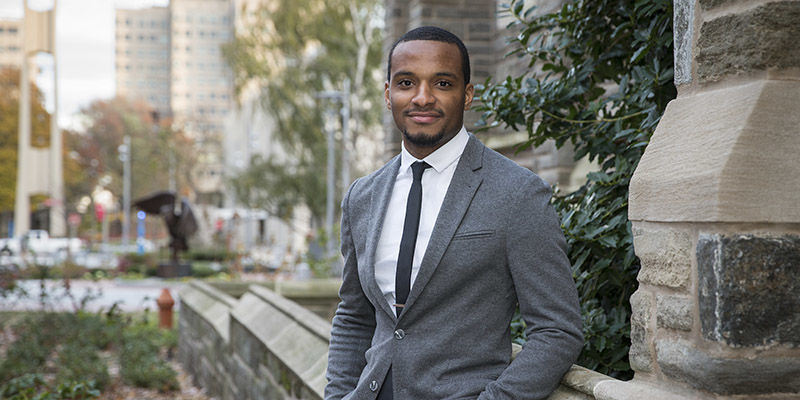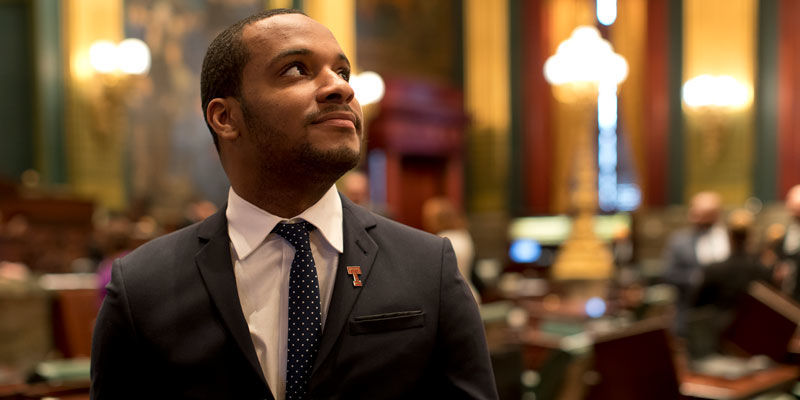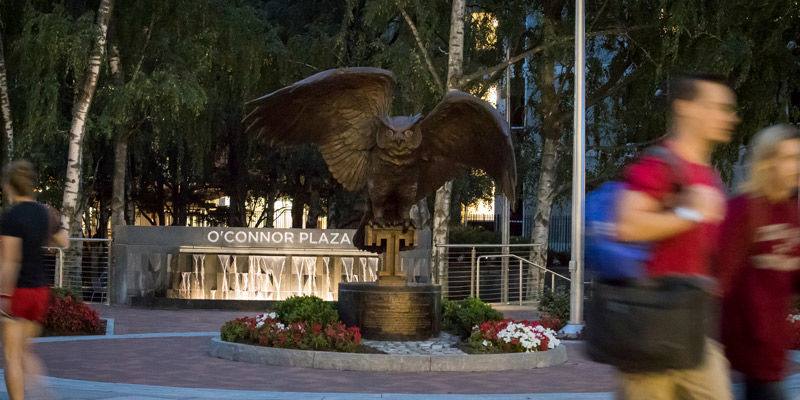From Broad to Oxford: Temple’s first Rhodes Scholar reflects on his story, prepares to leave to study in England
In a personal essay, Rhodes Scholar Hazim Hardeman looks back on his time at Temple and in Philadelphia as he prepares to start the next chapter of his life at Oxford University in late September.
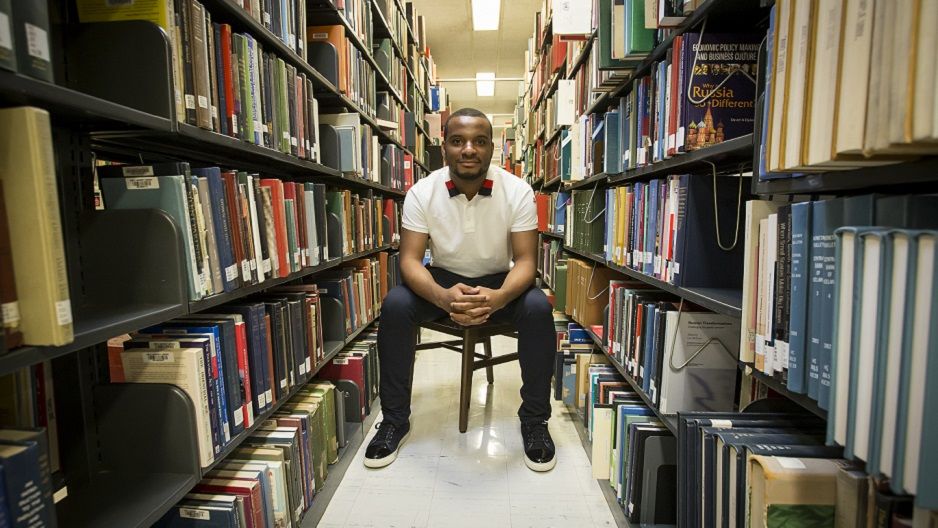
Less than a year ago, Hazim Hardeman, KLN ’17, experienced the emotional, life-changing moment of becoming a Rhodes Scholar. Now, as he prepares to leave Philadelphia for England, where he will pursue his master’s degree at Oxford, Hardeman writes of his Temple experience, what he hopes people can learn from his story, and what’s next for him.
Upon hearing my name called as a winner of the Rhodes Scholarship, I experienced the entire range of human emotions, from exultation to melancholy. That sadness was among the emotions I felt may seem strange considering the moment marked one of the best of my life thus far. However, what I experienced in that moment was a feeling brought on by my awareness that far too many people with similar backgrounds as me remain locked out of such opportunities. This awareness has caused me to be sensitive about how I narrate my story. What I seek to reject, at every turn, is a narrative in which my individual success magically alchemizes into the dissolution of the barriers that makes my story the exception to the rule.
Nonetheless, there are ways, I believe, that my story is having a positive effect in terms of breaking down the barriers I and many others experience. One way this is true is representationally. Although the Rhodes is not the sole arbiter of academic prowess, my winning demonstrates that a first-generation, low-income, community college graduate is just as worthy and deserving of the scholarship as those who have held a monopoly over it. Not only is the Rhodes Scholarship now in constant rotation in the conversations surrounding my alma mater, it is also now in the mouths and on the minds of people in my community.
The change my story has made is not merely abstract. The first time I was recognized after doing a lot press around receiving the scholarship was in Temple’s student center, by another student. He mentioned that he’d read my story and watched my interviews, and that my experiences resonated with him as a fellow North Philadelphian. That my accomplishment and journey gave him the inspiration to push through a difficult semester and eventually pursue the Rhodes. This is but one example of the numerous instances in which people have told me I’ve given them hope. The first step to achieving a goal is imagining that it’s possible. My accomplishment has given birth to such imaginings, making it possible for the next person to achieve as I have.
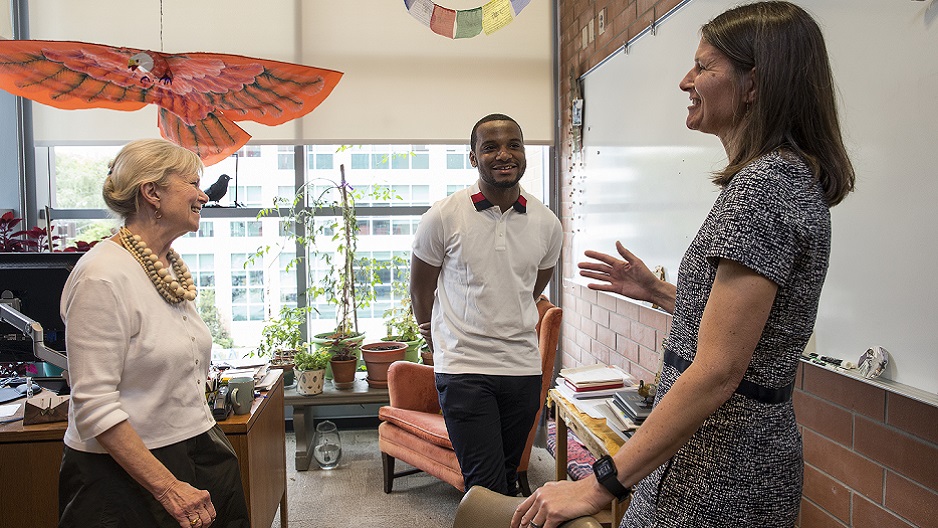
Honors Program Director Ruth Ost (left) and Fellowship Office Director Barbara Gorka were two of Hardeman's key mentors.
Photography by: Joseph V. Labolito
On this next step in my journey, I hope to do more of the same to provide a vision of what’s possible. I emphasize the importance of a vision because it was what people saw possible for me that led me to where I am. Thanks to the foresight and wisdom of Temple’s Honors Program Director Ruth Ost and Fellowship Office Director Barbara Gorka, I was encouraged to pursue a path I wouldn’t have otherwise considered. When applying for the Rhodes, I was encouraged to think deeply about how study in the UK might contribute to my intellectual development. This reflection led me to see the value in overseas studies, in comprehending how social, political and economic dynamics play out in an environment other than my own.
That I’ll get to do this with people from different nations, races and lived experiences—people who know and exist in the world differently than I do—is among the things I look forward to most. I’ll also for the first time have a “traditional” college experience, in which I’ll live with other students on campus. If there’s any trepidation going in, it’s that I won’t be able to take in all that studying at Oxford has to offer. Despite me knowing that there is no “right way” to do the scholarship experience, I fear not making the most of it.
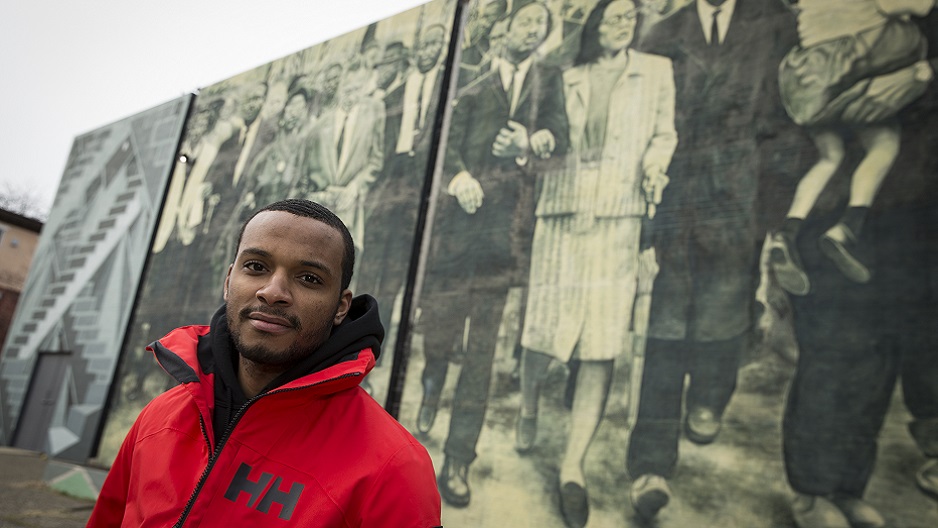
Hardeman stands in front of a mural in North Philadelphia near where he grew up, just a few blocks from Main Campus.
Photography by: Joseph V. Labolito
As I prepare to trade in Philadelphia’s large edifices for Oxford’s “dreaming spires,” I’m compelled to reflect on the things I’ll carry forward with me and think about what my story potentially means for others. That I am where I am despite seemingly insurmountable odds is a testament to a belief that I hold to be fundamentally true. Nothing in our world is fixed or final, and the barriers we face are only as strong or weak as our efforts to change them. This effort is always collective. This point was emphasized during Temple’s recent Commencement, where President Richard M. Englert spoke of my achievement in terms of the excellence in every endeavor that typifies a Temple Owl. This, I hope, is the enduring meaning of my story: that through investment, care and opportunity, anybody—no matter their circumstances in life—can go on to achieve that which was previously perceived to be unachievable.
—Hazim Hardeman, KLN ’17
